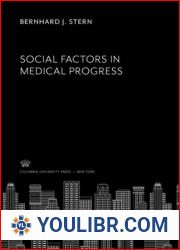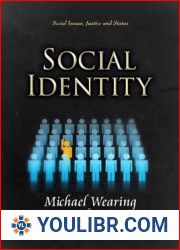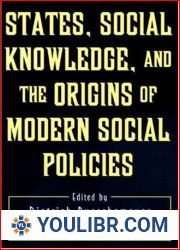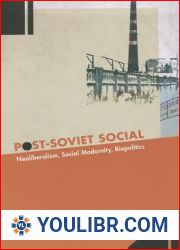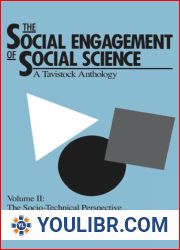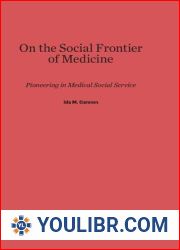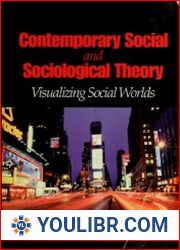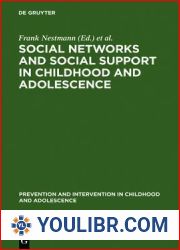
BOOKS - The Logic of Evil: The Social Origins of the Nazi Party, 1925-1933

The Logic of Evil: The Social Origins of the Nazi Party, 1925-1933
Author: William Brustein
Year: August 28, 1996
Format: PDF
File size: PDF 14 MB
Language: English

Year: August 28, 1996
Format: PDF
File size: PDF 14 MB
Language: English

The Logic of Evil: The Social Origins of the Nazi Party, 1925-1933 In this thought-provoking book, William Brustein challenges the conventional understanding of the rise of the Nazi Party in Germany during the 1920s and 1930s. He argues that the party's popularity was not solely due to Hitler's charisma or anti-Semitic ideology, but rather it was the result of the party's ability to address the material needs of a wide range of German citizens. Through a meticulous analysis of pre-1933 Nazi Party membership data from the official files at the Berlin Document Center, Brustein reveals that the party's success can be attributed to its proactive and shrewd programs that offered benefits to more people than any other political party in Weimar Germany. Brustein contends that the Nazi Party's appeal was not based on irrational or evil forces, but rather on the party's ability to provide economic benefits to its supporters. He suggests that the roots of evil may be found in the ordinary, everyday motivations of individuals seeking to better their lives.
The Logic of Evil: The Social Origins of the Nazi Party, 1925-1933 В этой книге, заставляющей задуматься, Уильям Брустейн бросает вызов общепринятому пониманию подъема нацистской партии в Германии в 1920-х и 1930-х годах. Он утверждает, что популярность партии была не исключительно из-за харизмы Гитлера или антисемитской идеологии, а скорее это было результатом способности партии удовлетворять материальные потребности широкого круга немецких граждан. Благодаря тщательному анализу данных о членстве в нацистской партии до 1933 года из официальных файлов в Берлинском центре документов, Брустейн показывает, что успех партии можно объяснить ее активными и проницательными программами, которые предлагали преимущества большему количеству людей, чем любая другая политическая партия в Веймарской Германии. Брустейн утверждает, что призыв нацистской партии был основан не на иррациональных или злых силах, а скорее на способности партии предоставлять экономические выгоды своим сторонникам. Он предполагает, что корни зла могут быть найдены в обычных, повседневных мотивациях людей, стремящихся улучшить свою жизнь.
The Logic of Evil : The Social Origins of the Nazi Party, 1925-1933 Dans ce livre qui fait réfléchir, William Brustein récuse la compréhension généralement acceptée de l'ascension du parti nazi en Allemagne dans les années 1920 et 1930. Il affirme que la popularité du parti n'était pas uniquement due au charisme d'Hitler ou à l'idéologie antisémite, mais plutôt à la capacité du parti à répondre aux besoins matériels d'un large éventail de citoyens allemands. Grâce à une analyse minutieuse des données sur l'appartenance au parti nazi jusqu'en 1933 provenant des dossiers officiels du Centre des documents de Berlin, Broustein montre que le succès du parti peut être attribué à ses programmes actifs et perspicaces qui ont offert des avantages à plus de personnes que n'importe quel autre parti politique en Allemagne de Weimar. Broustein affirme que l'appel du parti nazi ne reposait pas sur des forces irrationnelles ou maléfiques, mais plutôt sur la capacité du parti à fournir des avantages économiques à ses partisans. Il suggère que les racines du mal peuvent être trouvées dans les motivations ordinaires et quotidiennes des gens qui cherchent à améliorer leur vie.
The Logic of Evil: The Social Origins of the Nazi Party, 1925-1933 En este libro que hace pensar, William Brustein desafía la comprensión generalmente aceptada del ascenso del partido nazi en Alemania en los 1920 y 1930. Afirma que la popularidad del partido no se debió exclusivamente al carisma de Hitler o a la ideología antisemita, sino que fue el resultado de la capacidad del partido para satisfacer las necesidades materiales de una amplia gama de ciudadanos alemanes. A través de un cuidadoso análisis de los datos sobre la pertenencia al Partido Nazi antes de 1933 de los archivos oficiales en el Centro de Documentos de Berlín, Brustein muestra que el éxito del partido puede atribuirse a sus programas activos y perspicaces, que ofrecían beneficios a más personas que cualquier otro partido político en la Alemania de Weimar. Brustein sostiene que la llamada del partido nazi no se basó en fuerzas irracionales o malignas, sino más bien en la capacidad del partido para proporcionar beneficios económicos a sus partidarios. Sugiere que las raíces del mal pueden encontrarse en las motivaciones ordinarias y cotidianas de las personas que buscan mejorar sus vidas.
The Logic of Evil: The Social Origins of the Nazi Party, 1925-1933 In questo libro che fa riflettere, William Brusstein sfida la comprensione universale dell'ascesa del partito nazista in Germania negli annì 20 è 30. Egli sostiene che la popolarità del partito non è dovuta esclusivamente al carisma di Hitler o all'ideologia antisemita, ma piuttosto alla capacità del partito di soddisfare le esigenze materiali di una vasta gamma di cittadini tedeschi. Analizzando attentamente i dati sull'appartenenza al partito nazista fino al 1933 dai file ufficiali del Centro Documenti di Berlino, Brustain dimostra che il successo del partito può essere attribuito a programmi attivi e permissivi che offrivano vantaggi a più persone di qualsiasi altro partito politico della Germania di Weimar. Bustain sostiene che l'appello del partito nazista non era basato su forze irrazionali o cattive, ma piuttosto sulla capacità del partito di fornire vantaggi economici ai suoi sostenitori. Suggerisce che le radici del male possono essere trovati nelle normali motivazioni quotidiane di persone che cercano di migliorare la propria vita.
The Logic of Evil: The Social Origins of the Nazi Party, 1925-1933 In diesem nachdenklichen Buch stellt William Brustein das konventionelle Verständnis des Aufstiegs der Nazi-Partei in Deutschland in den 1920er und 1930er Jahren in Frage. Er argumentiert, dass die Popularität der Partei nicht allein auf Hitlers Charisma oder antisemitische Ideologie zurückzuführen sei, sondern vielmehr auf die Fähigkeit der Partei, die materiellen Bedürfnisse eines breiten Spektrums deutscher Bürger zu befriedigen. Durch die sorgfältige Analyse von Daten über die Mitgliedschaft in der NSDAP vor 1933 aus offiziellen Akten im Berliner Dokumentenzentrum zeigt Brustein, dass der Erfolg der Partei auf ihre aktiven und scharfsinnigen Programme zurückzuführen ist, die mehr Menschen Vorteile boten als jede andere politische Partei in Weimarer Deutschland. Brustein argumentiert, dass der Aufruf der NSDAP nicht auf irrationalen oder bösen Kräften beruhte, sondern auf der Fähigkeit der Partei, ihren Anhängern wirtschaftliche Vorteile zu bieten. Er schlägt vor, dass die Wurzeln des Bösen in den üblichen, alltäglichen Motivationen von Menschen zu finden sind, die ihr ben verbessern wollen.
''
Kötülüğün Mantığı: Nazi Partisinin Toplumsal Kökenleri, 1925-1933 Bu düşündürücü kitapta William Brustein, 1920'lerde ve 1930'larda Almanya'da Nazi Partisi'nin yükselişinin geleneksel anlayışına meydan okuyor. Partinin popülaritesinin yalnızca Hitler'in karizması veya anti-Semitik ideolojisinden kaynaklanmadığını, partinin çok çeşitli Alman vatandaşlarının maddi ihtiyaçlarını karşılama yeteneğinin bir sonucu olduğunu savunuyor. 1933 öncesi Nazi partisi üyelik verilerinin Berlin Belge Merkezi'ndeki resmi dosyalardan dikkatli bir şekilde analiz edilmesiyle Brustein, partinin başarısının Weimar Almanya'sındaki diğer siyasi partilerden daha fazla insana avantaj sağlayan aktif ve anlayışlı programlarına atfedilebileceğini gösteriyor. Brustein, Nazi Partisi'nin itirazının irrasyonel veya kötü güçlere değil, partinin destekçilerine ekonomik fayda sağlama yeteneğine dayandığını savunuyor. Kötülüğün köklerinin, hayatlarını iyileştirmek isteyen insanların sıradan, günlük motivasyonlarında bulunabileceğini öne sürüyor.
منطق الشر: الأصول الاجتماعية للحزب النازي، 1925-1933 في هذا الكتاب المثير للتفكير، يتحدى ويليام بروشتاين الفهم التقليدي لصعود الحزب النازي في ألمانيا في عشرينيات وثلاثينيات القرن الماضي. يجادل بأن شعبية الحزب لم تكن فقط بسبب كاريزما هتلر أو أيديولوجيته المعادية للسامية، بل كانت نتيجة لقدرة الحزب على تلبية الاحتياجات المادية لمجموعة واسعة من المواطنين الألمان. من خلال التحليل الدقيق لبيانات عضوية الحزب النازي قبل عام 1933 من الملفات الرسمية في مركز وثائق برلين، تُظهر بروشتاين أن نجاح الحزب يمكن أن يُعزى إلى برامجه النشطة والثاقبة، والتي قدمت مزايا لأشخاص أكثر من أي حزب سياسي آخر في فايمار ألمانيا. يجادل بروستاين بأن جاذبية الحزب النازي لم تكن قائمة على قوى غير عقلانية أو شريرة، بل على قدرة الحزب على توفير فوائد اقتصادية لمؤيديه. يقترح أن جذور الشر يمكن العثور عليها في الدوافع اليومية العادية للأشخاص الذين يسعون إلى تحسين حياتهم.








 49
49  3 TON
3 TON







